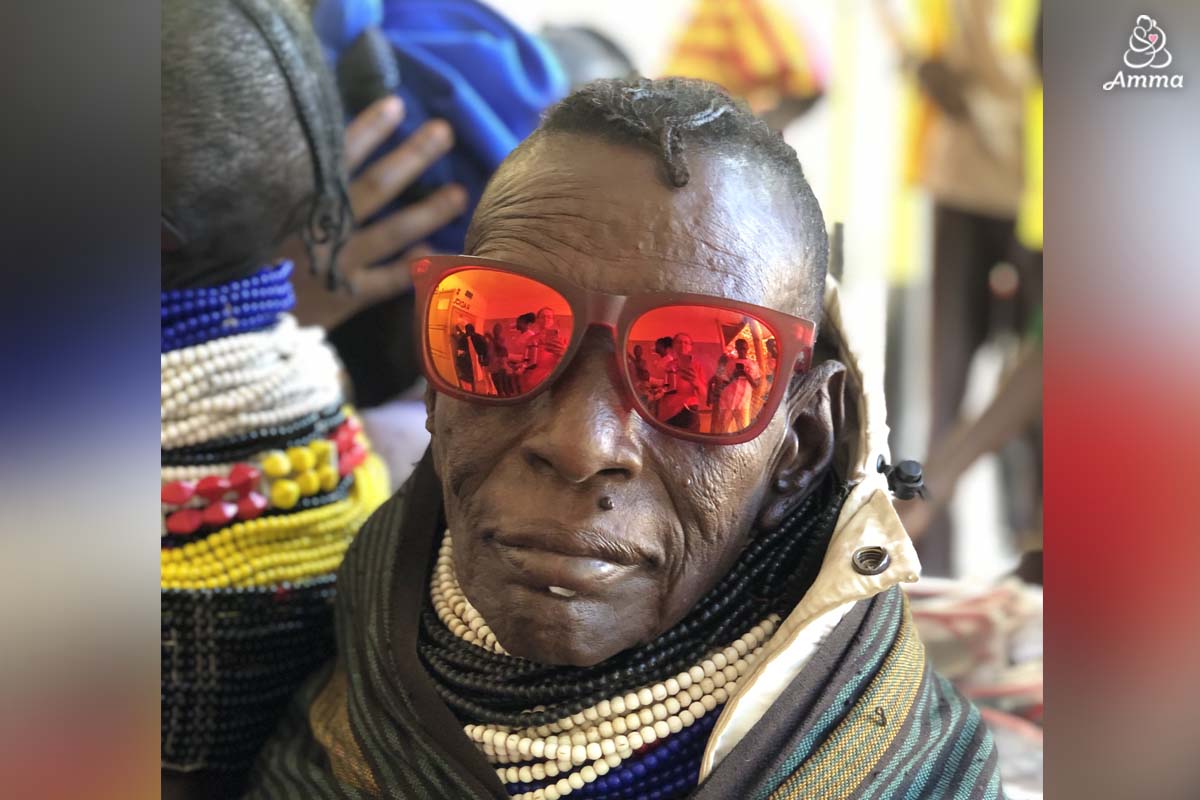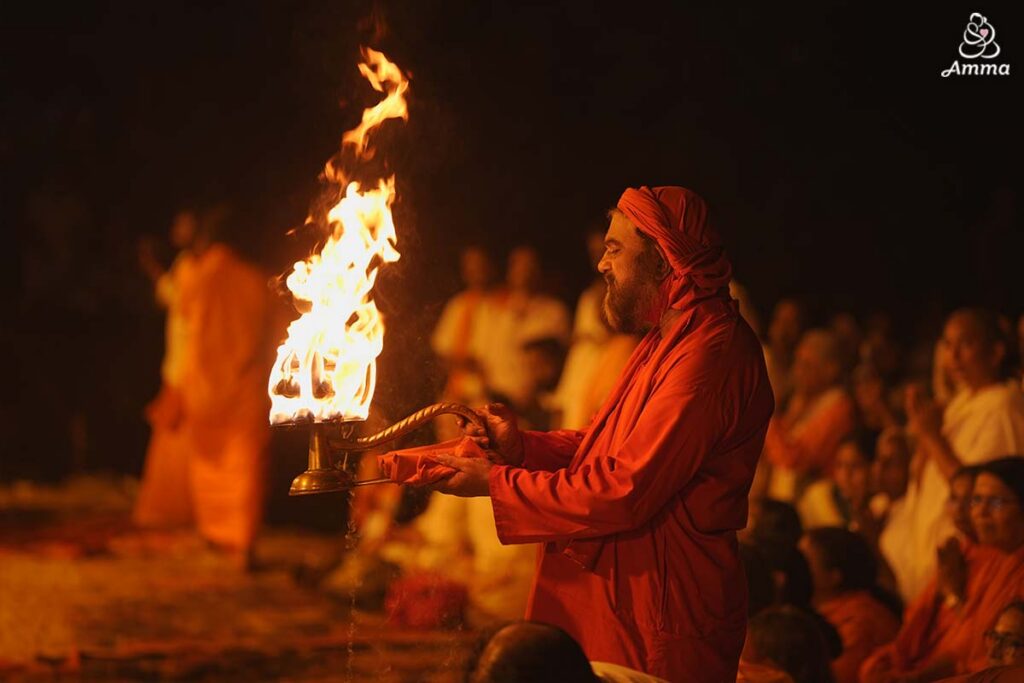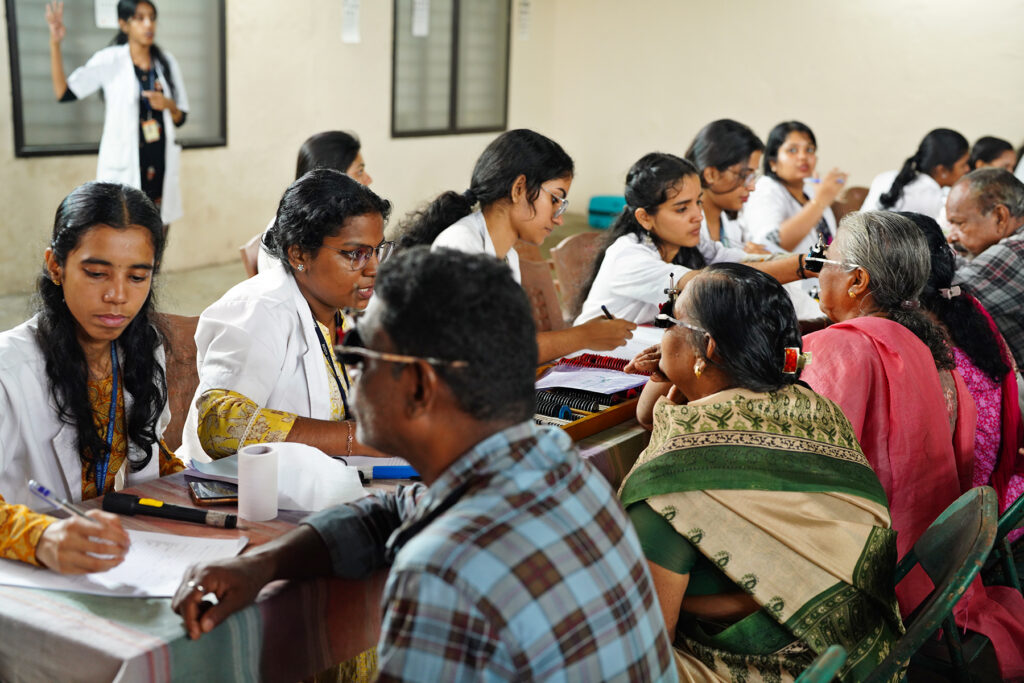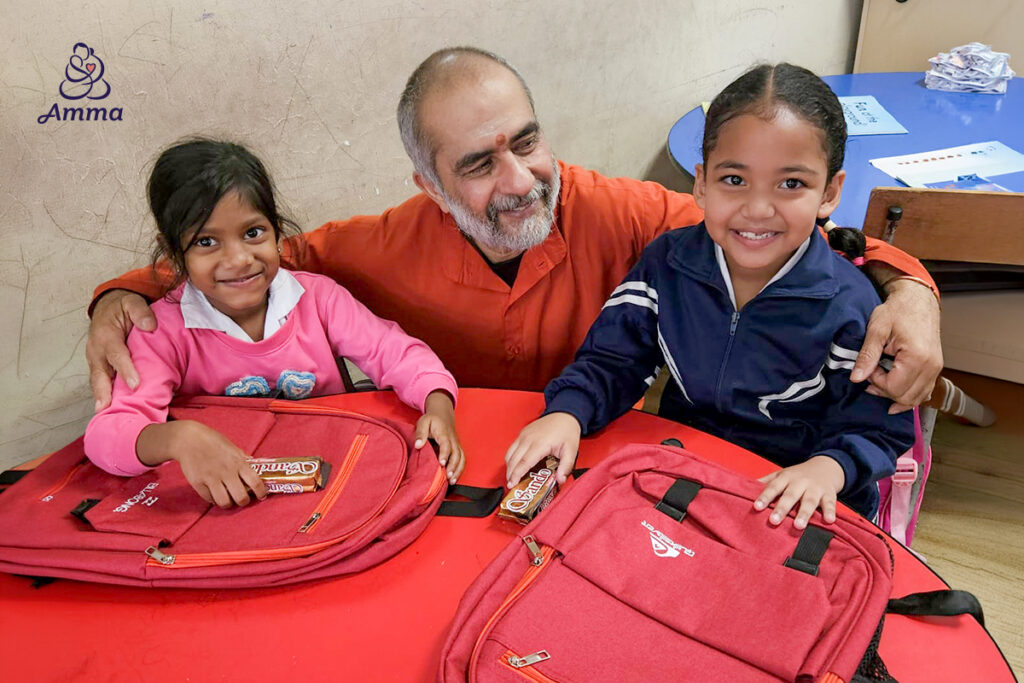It was a rare and humbling opportunity to serve people where their needs for basic survival are extremely urgent. Called by the United Nations Refugee Agency (UNHCR), our project to conduct free cataract surgeries reached Kakuma Refugee Camp in northwestern Kenya. In the sun-scorched, arid land of Turkana, life is often harsh and access to healthcare is painfully limited.
“When I was first contacted to perform cataract surgeries in a United Nations refugee camp, I felt deeply honored and grateful. At the same time, I was aware of the responsibility and the emotional intensity of the situation,” said Dr Isabel Signes, an optometrist with our Spanish partner, the NGO Visió Sense Fronteres (VSF).
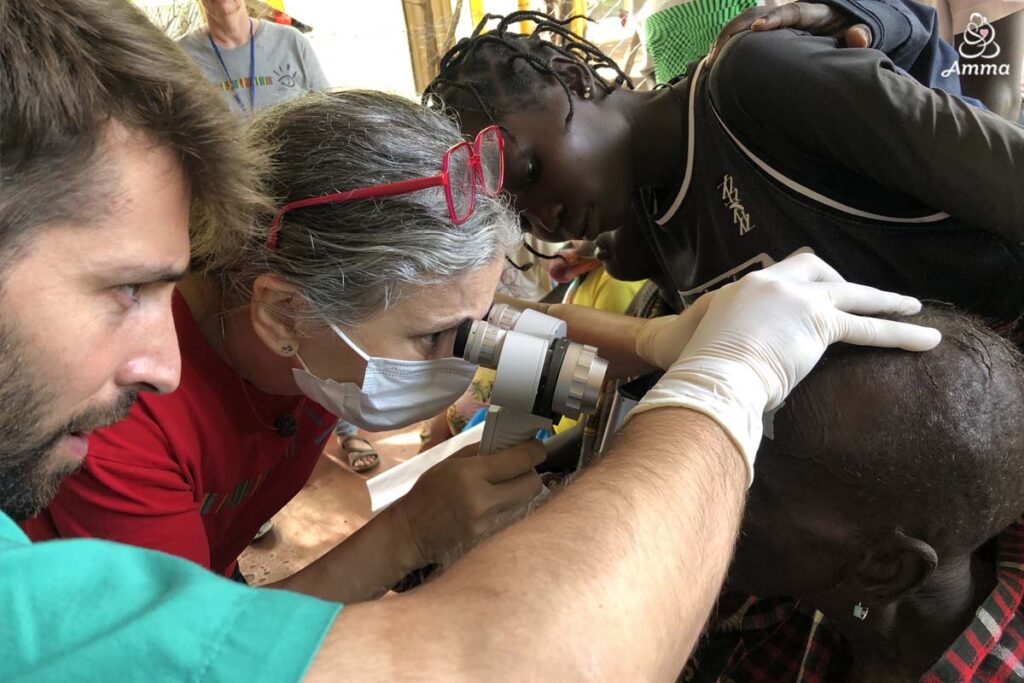
Kakuma is one of the world’s largest concentrations of the displaced, sheltering over 300,000 refugees including people from Sudan, Somalia, DR Congo, Burundi, and Ethiopia. Established in 1992, influxes over the years have been driven by conflict, persecution, food insecurity, and drought and floods as the world faces climate change.
Overcrowding in Kakuma has strained the camp’s infrastructure and today, the refugees are dealing with critical shortages in food, water, and medicine as the UN faces large funding cuts from government aid. Isabel says the focus of the free cataract surgeries was to give hope, at least in some small way.
“Meeting people who have fled their countries and endured so much hardship was profoundly moving. Many had lost their homes, families, and sense of safety. Despite everything, their resilience remains strong,” said Isabel.
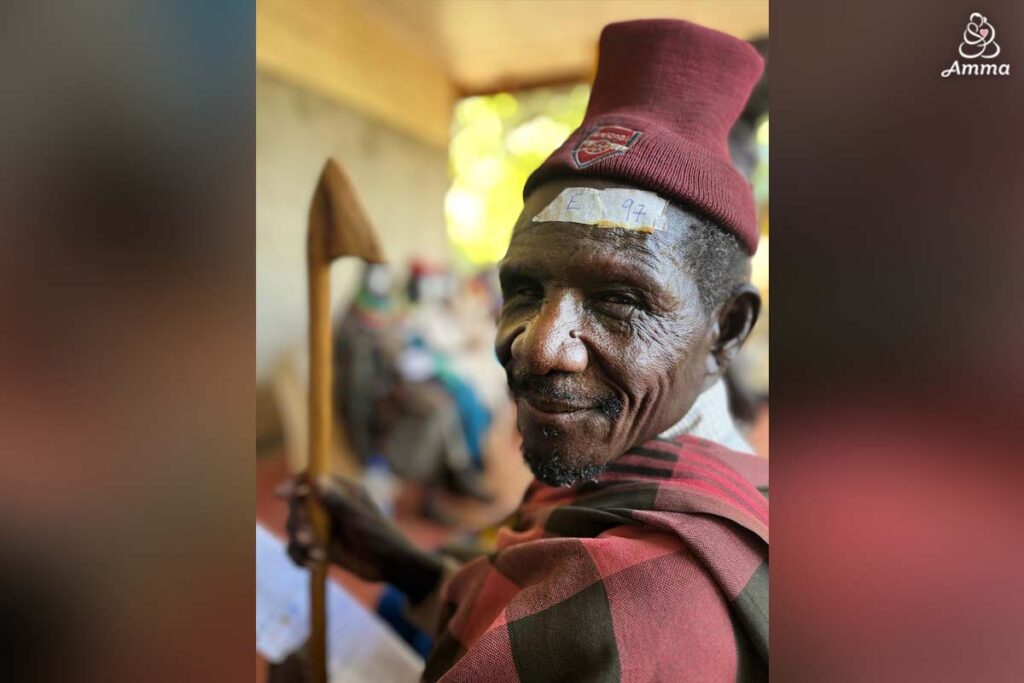
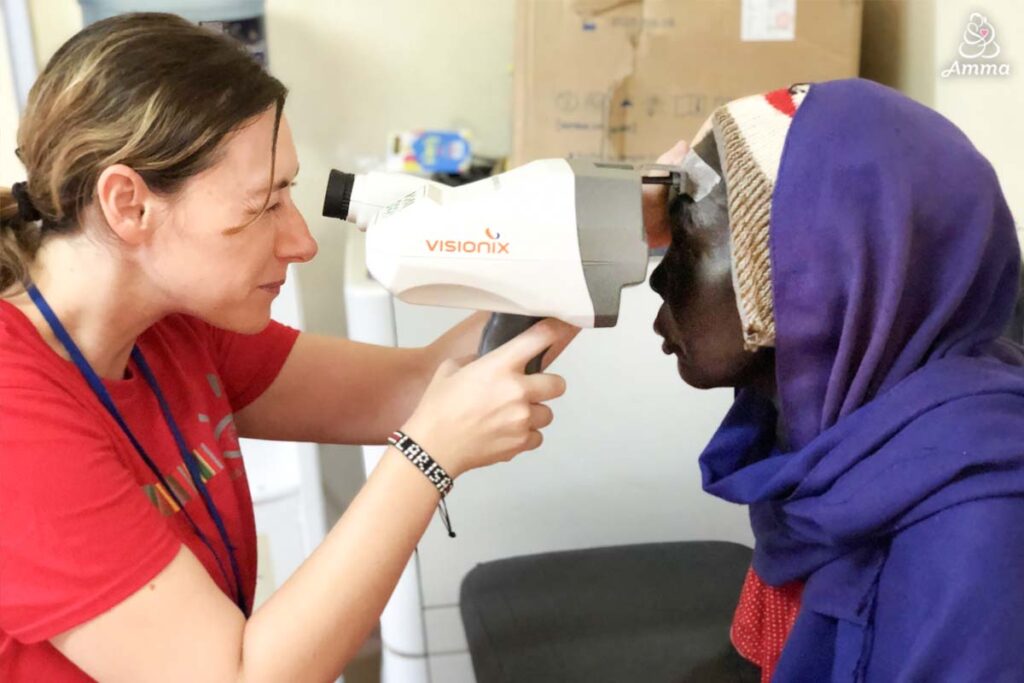
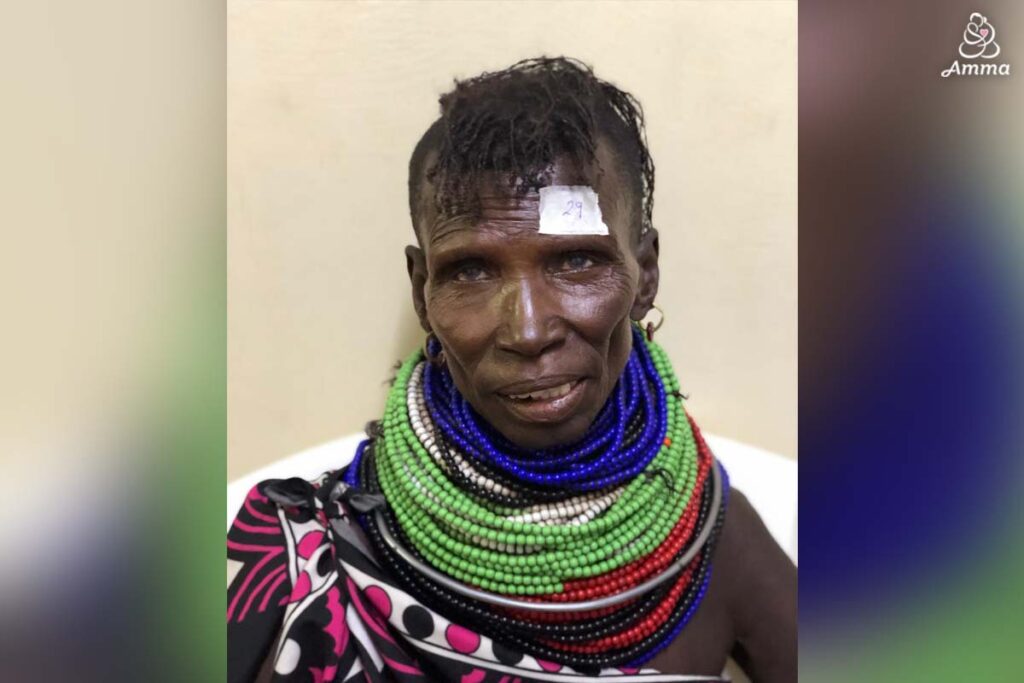
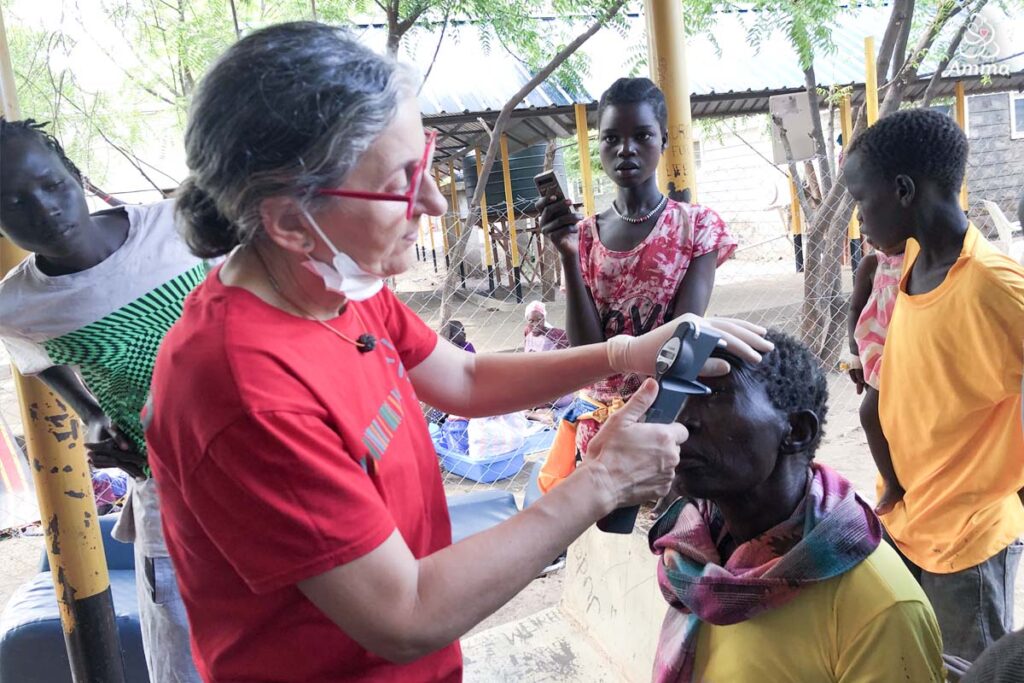
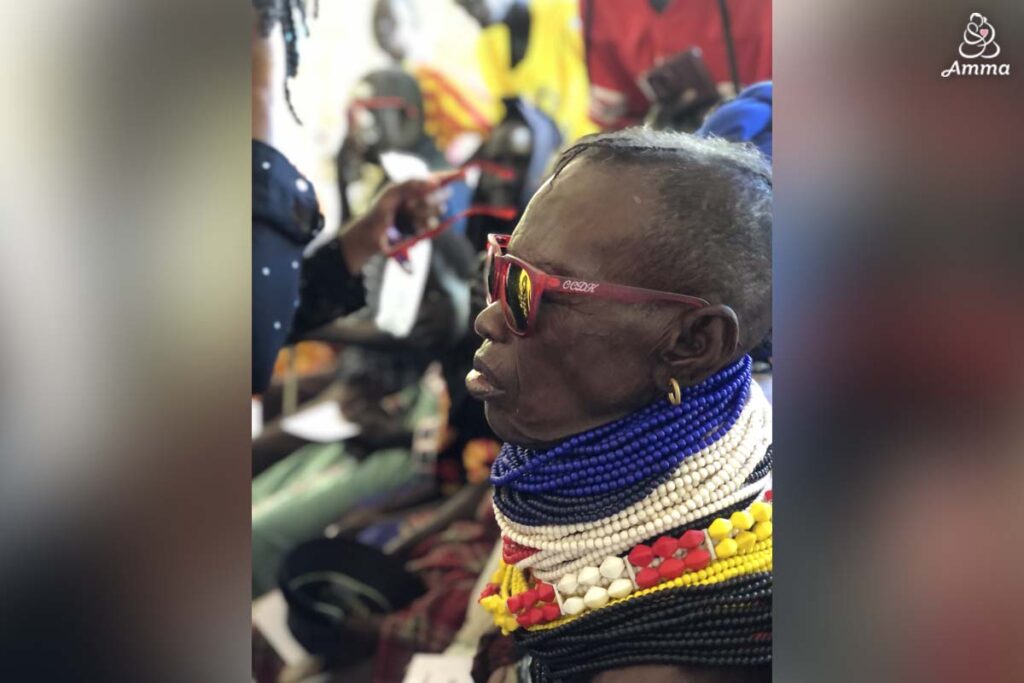
Eye conditions are more prevalent in Sub-Saharan Africa due to malnutrition, climate, and poor sanitation. A local team organised an intensive screening program in the weeks leading up to the operations, successfully examining around 900 patients.
Of these, 148 people were selected for surgery, including a three-year-old boy. Most had been affected for years by advanced cataracts or untreated eye diseases.
Our volunteers began procedures on April 13 at the Kakuma General Hospital, as well as Outreach Camps. The workdays were intense, starting early and continuing until late in the evening. Thanks to the collaboration among ophthalmologists, optometrists, nurses, and local staff, all planned surgeries were completed by April 21.
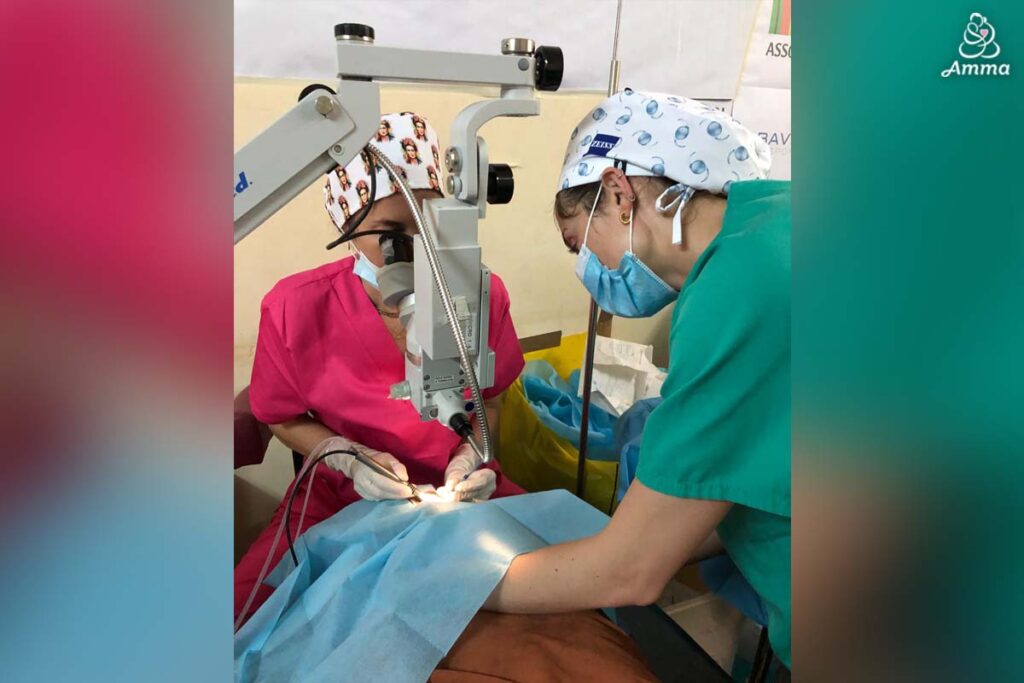
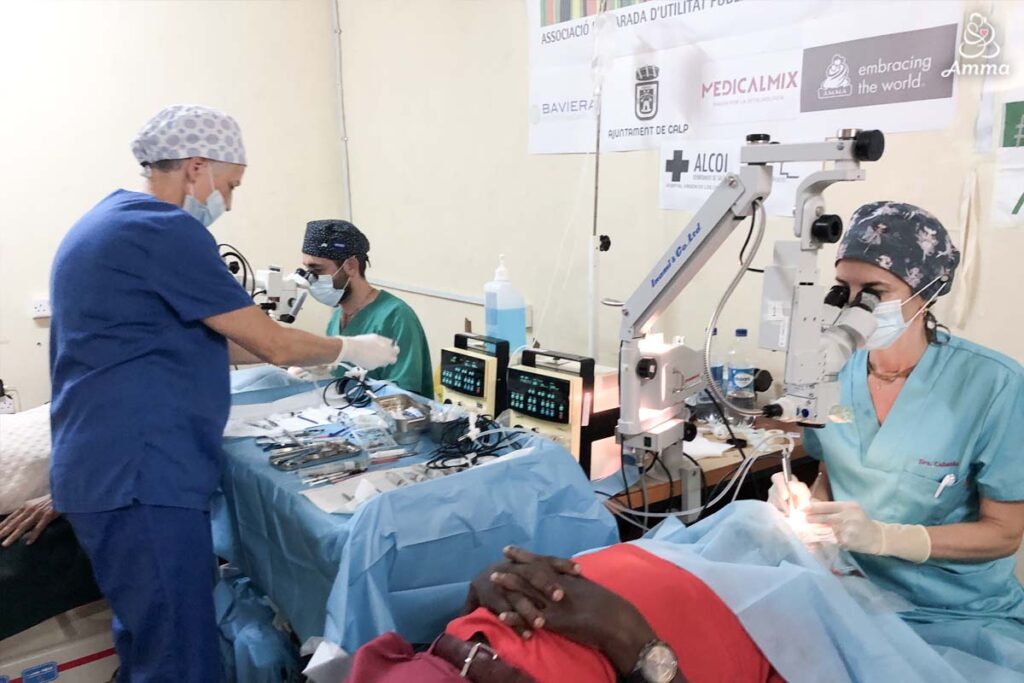
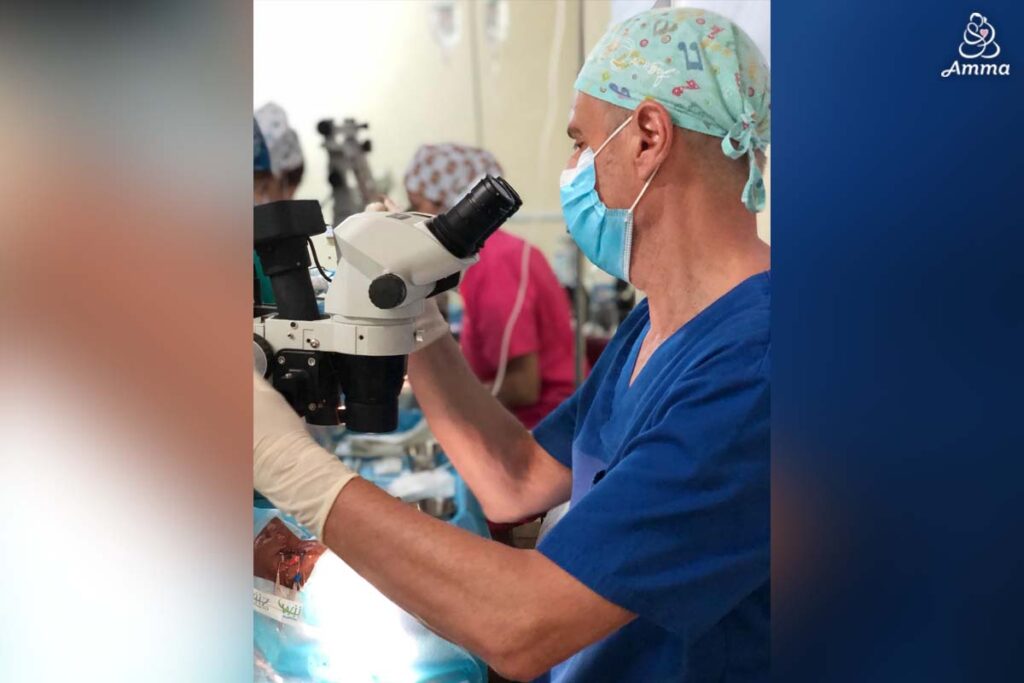
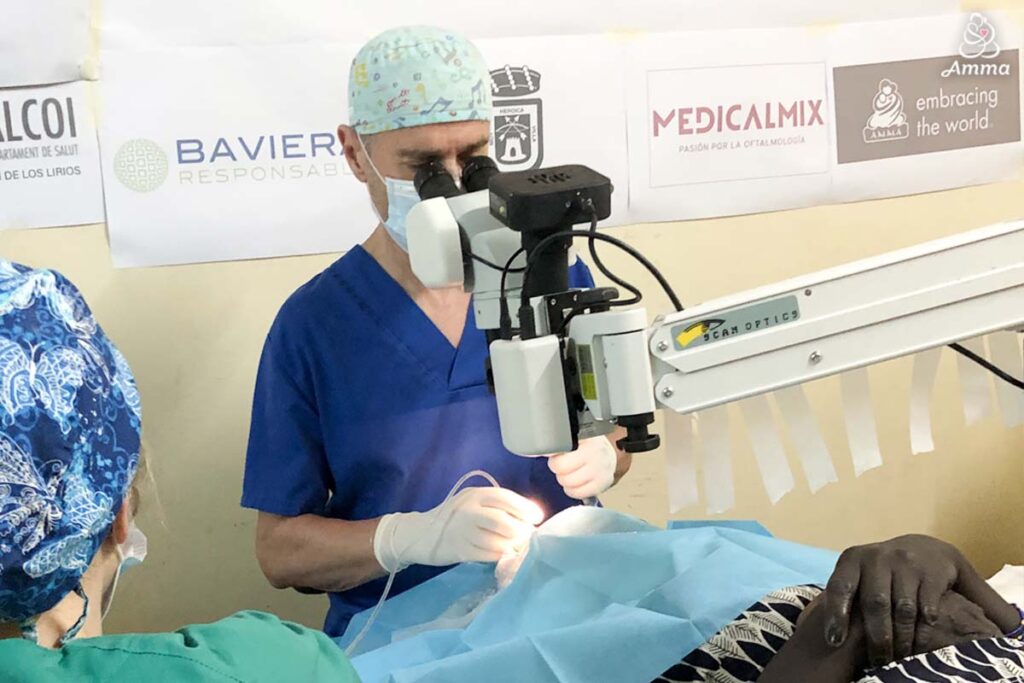
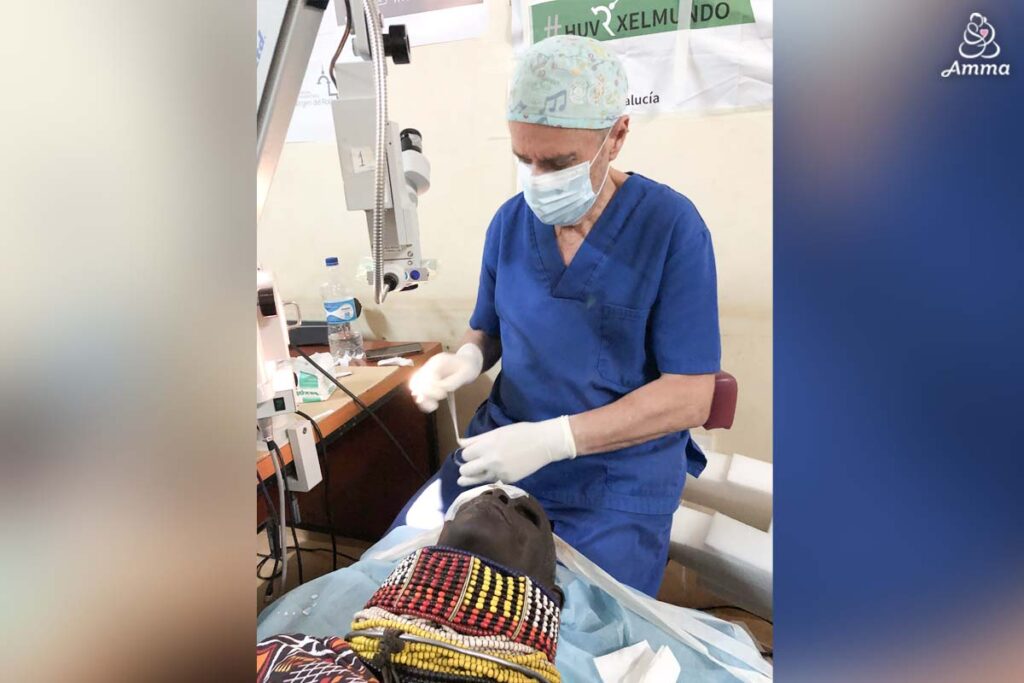
“There was a man, around 45 years old, who had been blind in both eyes for some time. He arrived at the camp led by his young son, who was only about 8 or 9 years old, acting as his guide. It was a deeply moving sight—a child guiding his father with such care and responsibility,” said Isabel, sharing one of many experiences.
“We performed cataract surgery on one of his eyes. The next day, when we removed the bandage, he opened his eye and looked directly at his son. With a trembling voice and tears welling up, he said, ‘Now I can see you.’ That moment reminded me why this work is so meaningful.”
In addition to the 148 surgeries, 220 sunglasses were distributed for postoperative protection, along with several pairs of prescription glasses to improve patients’ quality of life.
One of the recipients was a 30-year-old man who passed by the eye camp by chance. Since birth, his family was not able to afford glasses, and he could only see up to 30cm away. In that moment, he decided to ask for help.
Marcia Lee McLain is one of our volunteers from the US. She assisted the patients wherever possible, offering invaluable support in the operating room and logistics during the mission.
“The residents in Kakuma live with little access to the most basic of medical care. Our team restored sight to the blind and hope to the hopeless,” she said.
“Eyes clouded by cataracts and disease were opened—some after years of darkness—offering the gift of light to those who had thought they’d lost it forever.”
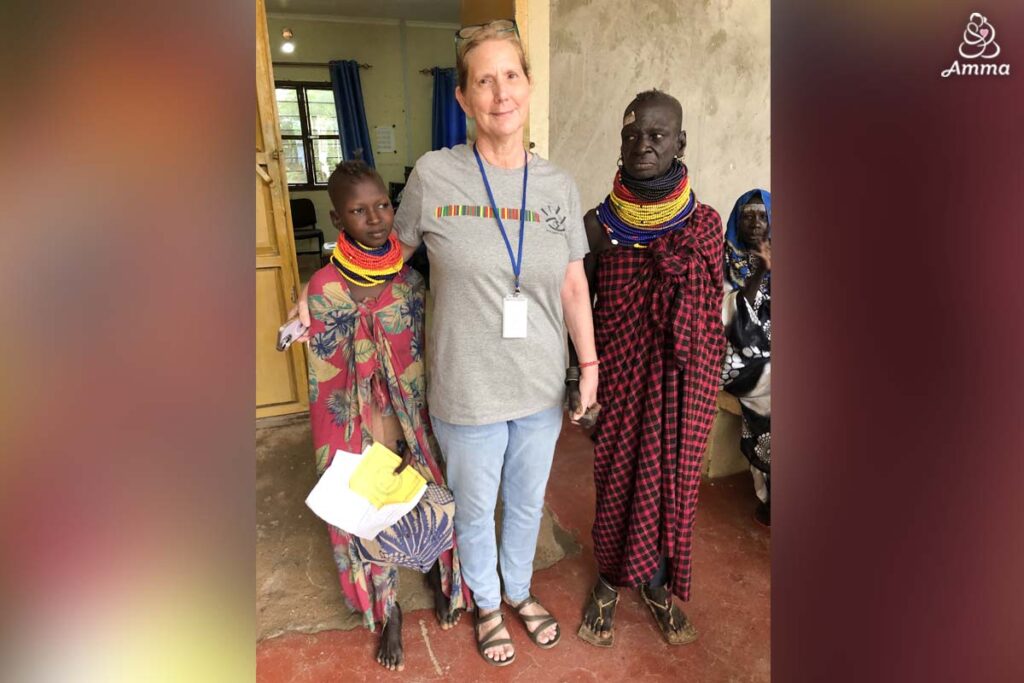
It is worth highlighting that Houda Latifine, an optometrist and Master’s student at the University of Valencia, participated in this campaign through a cooperation scholarship awarded by the University of Valencia in collaboration with us, thus reinforcing the educational and solidarity ties between academic institutions and field humanitarian work.
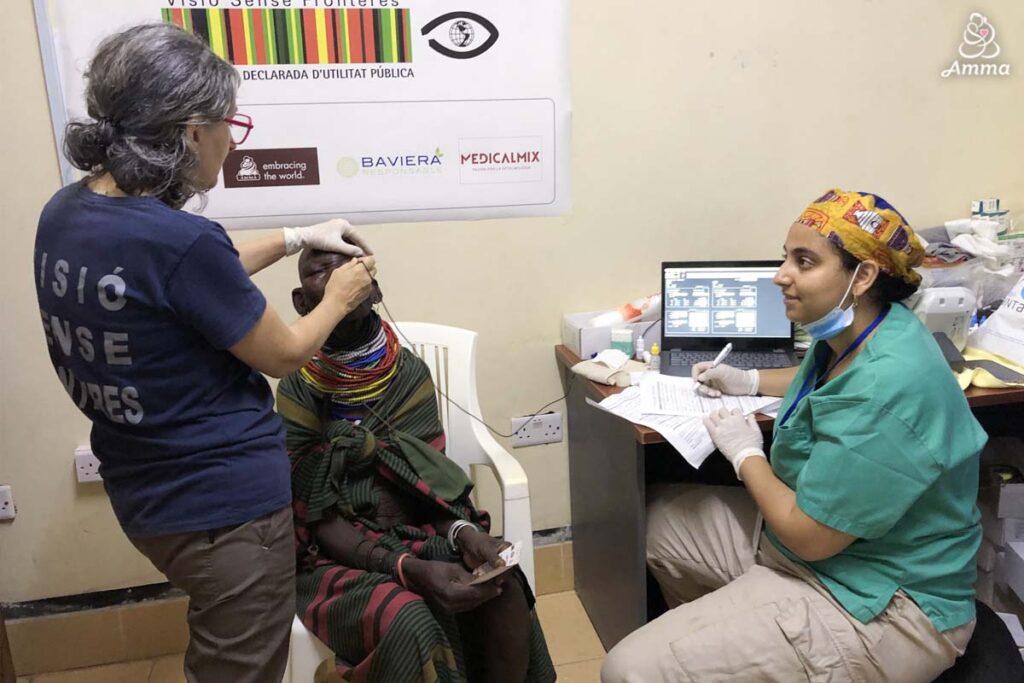
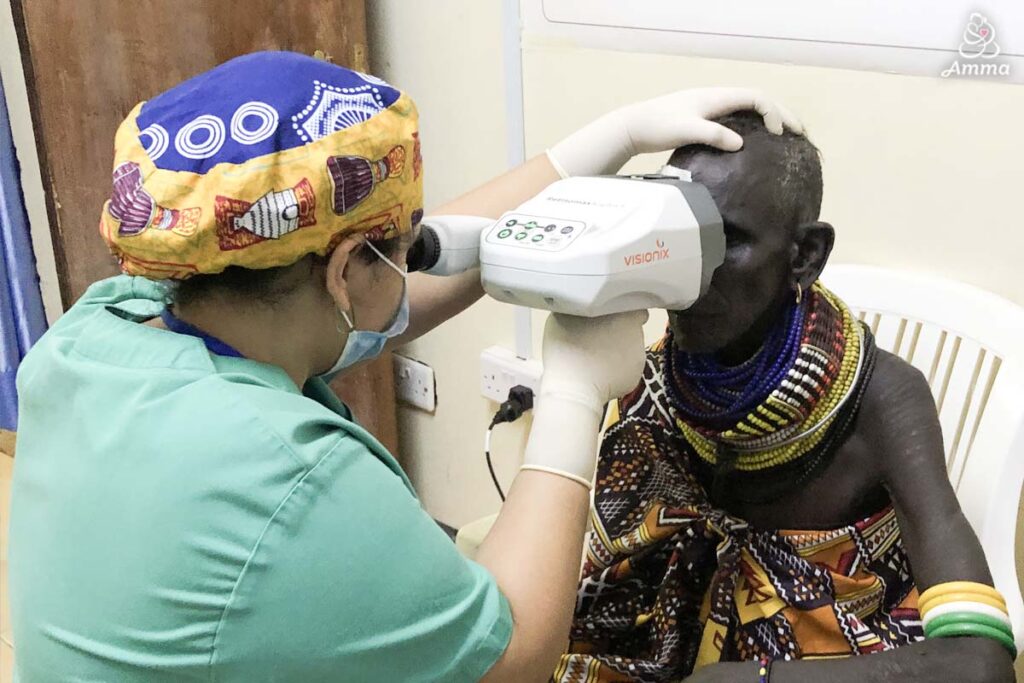

The project was much appreciated by the UNHCR at this challenging time, with strong involvement from the Government of Turkana County and tremendous commitment from all the professionals involved. This campaign in Kakuma marks a new milestone in our mission to bring light and hope to those who need it most.
“By the end of the camp, the whole team felt exhausted but deeply fulfilled. There was a strong sense of unity and purpose. We knew we had given our best and had received much in return through the love and gratitude of the people,” concluded Isabel.
“I would just add how powerful it is to serve with a heart full of devotion and humility. These experiences leave a mark in all of us, and I am grateful to Amma and the entire team for making it possible.”
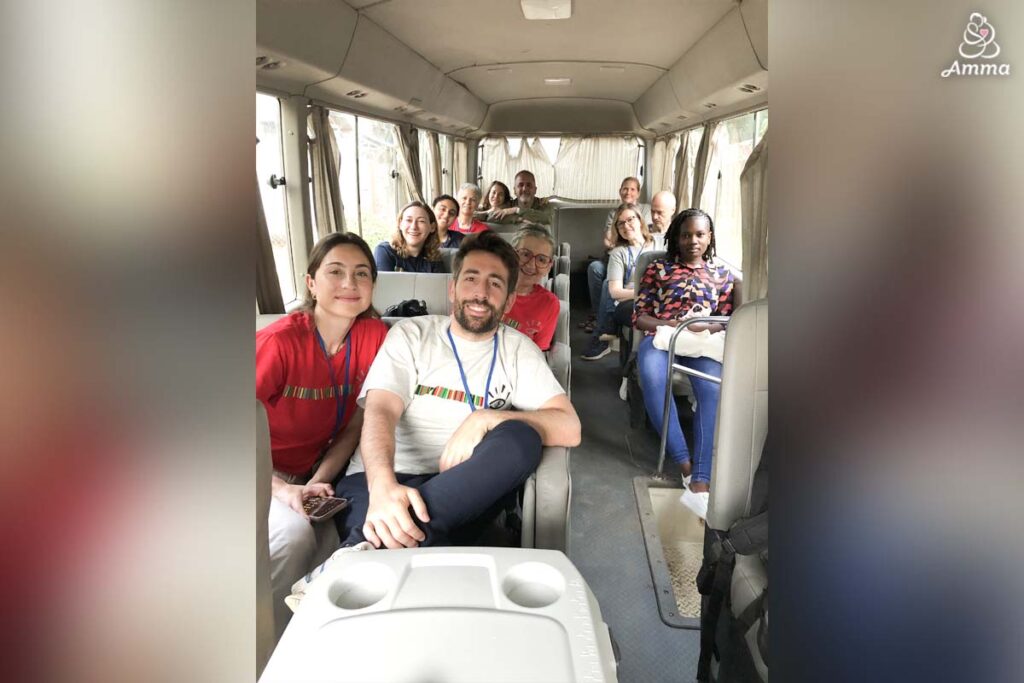
The Team
Ophthalmologists:
• Dr Margarita Cabanás (Seville)
• Dr Tomás Moya (Valencia)
• Dr Jaime Moya (Valencia)
Optometrists:
• Dr Isabel Signes Soler (Calp, Alicante)
• Ms Houda Latifine (Valencia)
• Ms Larisa Morenilla (Murcia)
Physician:
• Dr Joana Hernandez (Alicante)
Nurses:
• Ms Irene Fernández (Alicante)
• Ms Ivana De la Torre (Valencia)
Surgical Support Staff:
• Mr Fernando Moral (Seville)
• Ms Marcia Lee McLain (USA)
Local Coordination:
Dr Manish Shah and the medical team from Kakuma


